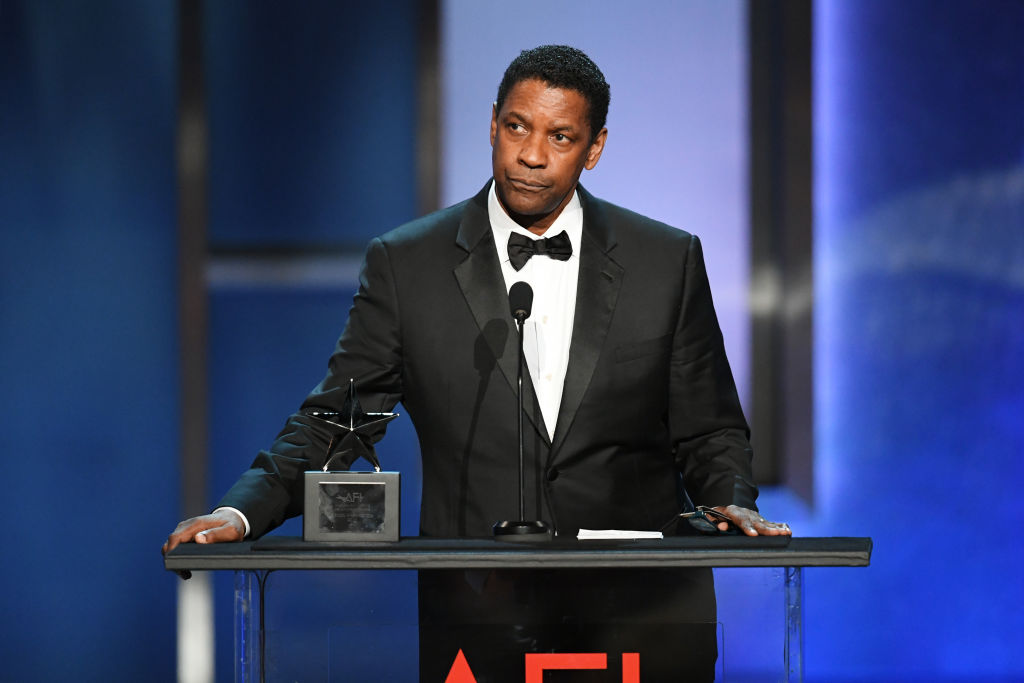Editor’s Note: Our readers responded strongly to this story when it originally ran; we’re reposting it here in case you missed it.
In Hollywood, the overwhelming attitude is one of selfishness and pride. For this reason, it is always refreshing to hear someone break that mold.
That is exactly what actor Denzel Washington did in an interview with The New York Times ahead of his movie “The Tragedy of Macbeth,” which was released on Christmas Day.
Washington said the story, based on the Shakespearean classic, is one of sacrifice and selflessness, a much different attitude from that of most Hollywood stars.
“It’s just a beautiful story of loss and love, a story about real heroes and sacrificing, men and women who have given their lives so that we have the freedom to complain,” he said.
Washington said when his mother died, his perspective on life shifted. His last promise to her was that he would “attempt to honor her and God by living the rest of my days in a way that would make her proud,” the Times reported.
“So that’s what I’m trying to do,” he said. “I’m more interested in directing because I’m more interested in helping others.
“What I do, what I make, what I made — all of that — is that going to help me on the last day of my life? It’s about, who have you lifted up? Who have we made better?”
In an answer to his own question, Washington said his worldview is one that expands far beyond his temporary stay on this Earth.
“This is spiritual warfare,” the two-time Oscar winner said. “So, I’m not looking at it from an earthly perspective. If you don’t have a spiritual anchor, you’ll be easily blown by the wind and you’ll be led to depression.”
Washington’s father was a Pentecostal minister, the Times reported. Even though his father died 30 years ago, the actor does his best to carry on his example.
Corey Hawkins, who co-stars with Washington in “The Tragedy of Macbeth,” said he can tell Washington’s father had an effect on him.
“Sometimes we get talking and you see the preacher in him,” the younger actor said. “He’s just a natural-born charismatic leader who is not afraid to talk about his own faults or misgivings or shortcomings.”
Washington said one of the more important messages to share is selflessness, the same kind that appears both in his new film and, more importantly, in the Bible.
“The enemy is the inner me,” he told the Times. “The Bible says in the last days — I don’t know if it’s the last days, it’s not my place to know — but it says we’ll be lovers of ourselves. The No. 1 photograph today is a selfie, ‘Oh, me at the protest.’ ‘Me with the fire.’ ‘Follow me.’ ‘Listen to me.’
“We’re living in a time where people are willing to do anything to get followed. What is the long- or short-term effect of too much information? It’s going fast and it can be manipulated obviously in a myriad of ways. And people are led like sheep to slaughter.”
Washington appeared to be referencing 2 Timothy 3:1-5, which is a word of advice from Paul to Timothy.
“But understand this, that in the last days there will come times of difficulty,” the verse states. “For people will be lovers of self, lovers of money, proud, arrogant, abusive, disobedient to their parents, ungrateful, unholy, heartless, unappeasable, slanderous, without self-control, brutal, not loving good, treacherous, reckless, swollen with conceit, lovers of pleasure rather than lovers of God, having the appearance of godliness, but denying its power. Avoid such people.”
The selfless path is rarely the easier one in the moment. It almost always seems more appealing to live a life with only yourself in mind.
However, Washington said following God’s calling brings a reward much better than we could ever hope for on Earth.
The Times interviewer said the actor told her that in heaven, “there are going to be two lines, the long line and the short line, and I’m interested in being in the short line.”
In a time where too many Americans hold themselves as the most important person in the world, Washington’s message is a refreshing reminder of biblical truth.
This article appeared originally on The Western Journal.















 Continue with Google
Continue with Google